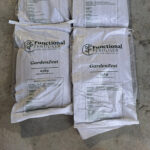PW Burton
Rachel Stewart’s recent column on the Advertising Standards Authority decision, on the Greenpeace TV advertisements, should be taken seriously by famers, because the Authority is simply reflecting what the majority of people believe.
It’s an argument that DairyNZ, Federated Farmers, and Fonterra can’t win and to continue to tell their members and customers, the public at large, that they’re wrong, just makes them look out of touch, and somewhat daft.
Farmers require the support of the buying public for their well-being. The notion that dairy product from cows is essential for the health of the nation defies the fact that an increasing number of children are being raised on dairy free diets, and they are every bit as fit and strong as those consuming milk.
It was the head of Fonterra, Theo Spierings that coined the phrase ‘perception is reality’. The perception that the dairy industry is causing a substantial amount of environmental damage is gaining traction, and in the minds of those folk it is reality.
Once the ‘environmental negative’ tag is cemented in place in people’s minds, no amount of logical argument will change it. We are all emotional beings and logic is only used to justify the attitudes we hold dear.
Those involved at the top of Fonterra and DairyNZ are political beings. Knowing how large organisations operate internally is essential for those reaching decision making roles.
And politics is entirely about power. Power is unique, as it is the only thing known that is not governed by the law of diminishing return (the more we have the less we crave it).
Power works the other way, which is why politicians seldom voluntarily relinquish office and, when their position also dictates the amount earned, they normally fight tooth and nail to defend it.
The issue over declining water quality and environmental degradation being attributed to large scale nitrogen dependent dairying, is that those currently defending it are going to lose, and in the minds of many they already look well out of touch with reality.
This becomes increasingly apparent when there are alternative soil fertility systems that can put dairy farming at the forefront of the environmental movement, because it is under intensive pastoral farming that soil carbon can most rapidly be sequestered.
But not when the farming is carried out using large amounts of nitrogen fertiliser. At present the average usage is approx. 160kgN/ha annually and the science by Mulvaney, Khan, and Illsworth at University of Illinois shows it resulting in the loss of soil carbon. With soil carbon’s role as a filter, a subsequent decline in water quality follows.
This situation can be reversed almost immediately without loss in milk production. However, it seems that a change will not be forthcoming from those entrenched in the current system and stubbornly refusing to look at the evidence.
A change in personnel is required, and it’s only a matter of time before this occurs, as continuing to tell the buying public they don’t understand just accelerates the rate at which support and sales are lost.
When that change does happen it will come with a loss of power, privilege, and status – the very things that those at the head of the industry are fighting to retain.
Rachel Stewart is right when she claims that DairyNZ’s response to the finding by the Advertising Standards Authority is based on denial and aggression, and hits the nail firmly on the head when she’s says that it defies all rationality; but ultimately it won’t defy the gravity of public pressure.
For more information contact Peter on 0800 843 809




